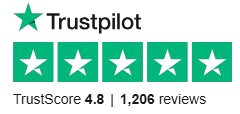
Differences Between Secured And Unsecured Loans
Deciphering Secured vs. Unsecured Business Loans: What UK SMEs Need to Know Navigating the business loans market in the UK can often feel like solving…
Do you need to consider consolidating multiple business debts?
We have partnered with Funding Options so you can compare over 120 lenders to find the right refinancing partner for you.

Some of the lenders compared….
At Simply Business Loans we have partnered with Funding Options to bring you access to over 120+ lenders. Funding Options provides you with one simple application process that delivers uniquely tailored loan solutions for your business. Their technology, Funding Cloud, will accurately validate your business profile, matching you to the industry’s largest lender network.
Start with how much you need to borrow, what it’s for, and basic information about your business.
Smart technology at Funding Options will compare up to 120+ lenders and match you with matched finance options
Help is provided to you during application process to receiving your funds. It’s free to apply and it doesn’t affect your credit score
Managing debt is a common part of running a small business. If your business has multiple loans or other forms of debt, you might be thinking about refinancing or debt consolidation. Both strategies can simplify your finances and potentially lower costs, making repayment easier. However, these choices should be made carefully, weighing both the benefits and risks.
Understanding Business Debt Refinancing
Refinancing means replacing existing debt with a new loan that ideally has better terms. You’re essentially paying off your current loans with a new one, aiming for more favorable loan conditions like lower interest rates, better repayment schedules, or more flexible terms.
Reasons to Consider Refinancing
Lower Interest Rates: If interest rates have dropped since you first took out your loans or your creditworthiness has improved, refinancing could lower the interest you pay on your debt.
Improved Cash Flow: A lower monthly payment can free up cash for other business needs, improving your overall financial flexibility.
Consolidation of Multiple Loans: Refinancing could let you combine multiple loans into one with a single monthly payment if you have multiple loans, simplifying debt management.
Better Loan Terms: You might be able to extend the repayment period to lower monthly payments or secure more favourable terms based on your current financial standing.
Understanding Business Debt Consolidation
Debt consolidation combines multiple loans or lines of credit into a single loan to simplify debt payments and potentially get better terms on the consolidated amount. Debt consolidation is often part of a refinancing strategy, but it specifically focuses on merging multiple loans into one.
Reasons to Consider Debt Consolidation
Simplify Debt Management: Consolidating your debt gives you one loan with one payment schedule instead of tracking multiple due dates, interest rates, and lenders.
Potential Cost Savings: Consolidating might get you a lower overall interest rate, which can lower the total cost of your debt.
Predictable Payments: Consolidating your debt makes budgeting easier since you have only one fixed-rate payment to plan for each month.
Improved Terms: Like refinancing, consolidation can let you renegotiate loan terms, such as getting a lower interest rate or extending the repayment period.
Benefits of Refinancing and Consolidating Business Debt
Reduced Interest Rates: Taking advantage of lower interest rates is one of the main reasons to refinance or consolidate, and it can save your business a lot of money over time.
Better Cash Flow: Refinancing or consolidating can improve your cash flow by lowering your monthly payment, giving you more flexibility to reinvest in your business or cover other operational costs.
Simplified Finances: Managing one loan instead of multiple makes tracking payments and managing debt easier, lowering the administrative burden and the risk of missing a payment.
Avoid Default Risk: Refinancing or consolidating can help you avoid defaulting on loans if you’re struggling to meet current payment obligations, which would hurt your business credit score.
Opportunity for Growth: With better loan terms or improved cash flow, you can reinvest in your business to fuel growth, hire staff, or expand operations.
Points of Caution
While refinancing or consolidating debt can offer many benefits, there are also risks to be aware of:
Fees and Costs: Many lenders charge fees for refinancing or consolidating debt, including origination fees, early repayment penalties on existing loans, or other administrative fees. It’s important to factor these costs into your decision to make sure refinancing will actually save you money.
Longer Repayment Terms: Extending your loan term can lower your monthly payments, but it can also raise the total cost of the loan because you’re paying interest for a longer period. Weigh the short-term benefit of lower payments against the long-term cost.
Credit Impact: Refinancing or consolidating debt can affect your credit score. A hard credit inquiry might temporarily lower your score, and closing older accounts if you’re consolidating could affect the length of your credit history. Consider the potential impact on your business credit score when exploring these options.
Collateral and Personal Guarantees: Some refinancing or consolidation loans might require you to provide additional collateral or a personal guarantee, which could put your assets at risk if you can’t repay the loan.
Hidden Terms: Read the fine print on any refinancing or consolidation loan. Some loans have unfavorable terms, like variable interest rates that can rise over time, prepayment penalties, or restrictive covenants that limit your business decisions.
Qualifying Criteria: Not every business will qualify for refinancing or consolidation with better terms. Your ability to secure a better loan may depend on your credit score, business history, and current financial situation.
Deciding if Refinancing or Consolidating Is Right for Your Business
Evaluate Your Current Loans: Take stock of your existing loans’ current interest rates, payment schedules, and terms. Identify which loans might be worth refinancing or consolidating.
Check Current Interest Rates: Compare the interest rates on your current loans to the rates available in the market. Refinancing might be a good idea if rates have decreased or your credit score has improved.
Consult a Financial Advisor: Talk to a financial advisor or accountant who can help you analyse whether refinancing or consolidating is a good financial move for your business.
Compare Lenders: Don’t go with the first lender that offers refinancing or consolidation. Shop around and compare offers from multiple lenders to find the best terms.
Use a Loan Calculator: Use an online loan calculator to see what your payments would look like after refinancing or consolidating before committing to a new loan. Make sure you’re truly saving money in the long run.
A New Approach
Refinancing and consolidating business debt can be valuable strategies for managing cash flow, lowering interest payments, and simplifying loan management. It’s important to weigh the potential benefits against the costs and risks involved. By thoroughly evaluating your current financial situation, understanding the terms of new loans, and consulting with financial professionals, you can make an informed decision that helps your business succeed.

Deciphering Secured vs. Unsecured Business Loans: What UK SMEs Need to Know Navigating the business loans market in the UK can often feel like solving…

Navigating the Landscape of UK Business Loans: What You Need to Know As the backbone of the British economy, small to medium-sized enterprises (SMEs) are…

The Key Takeaways The 2024 UK budget was announced on October 30th 2024. It is the first budget of the Labour government in 14 years.…
About This Information
Our articles, guides & reviews are provided as generic information only. Any expressed view, product or service mentioned within these does not constitute as financial advice or recommendation by us.
Be mindful that information may have changed since publication.